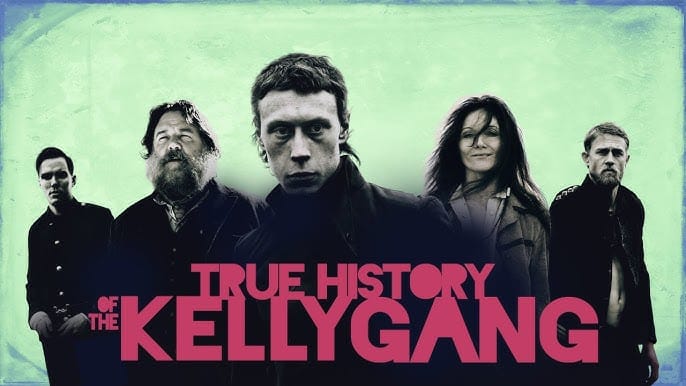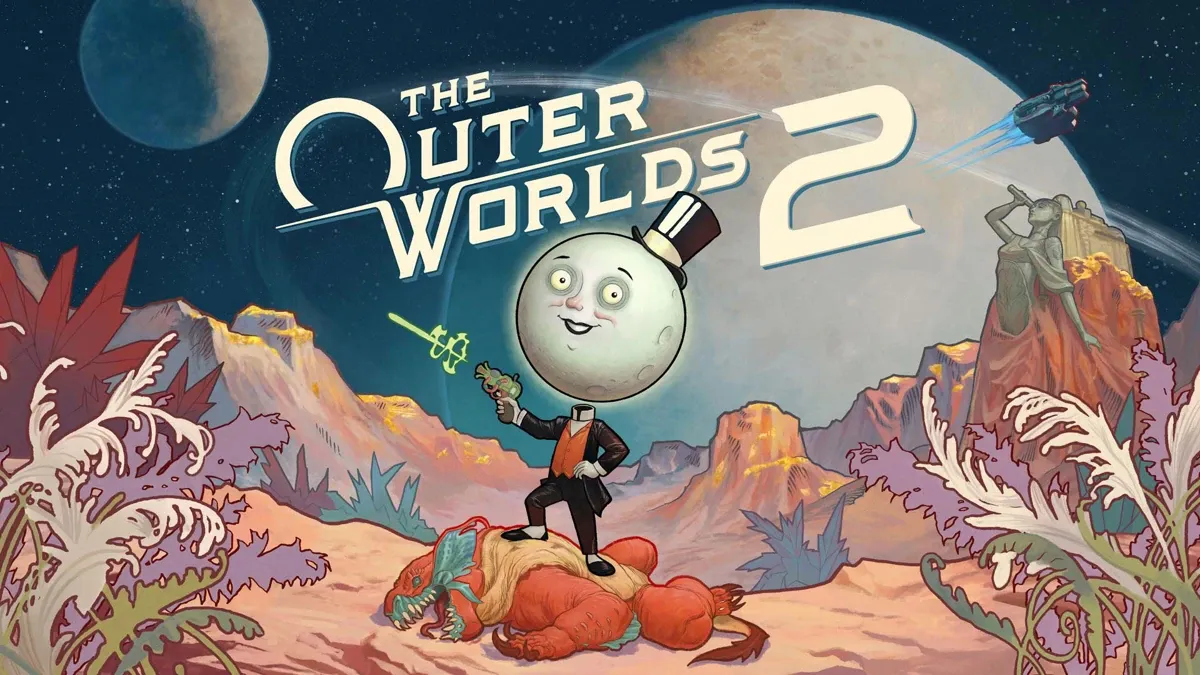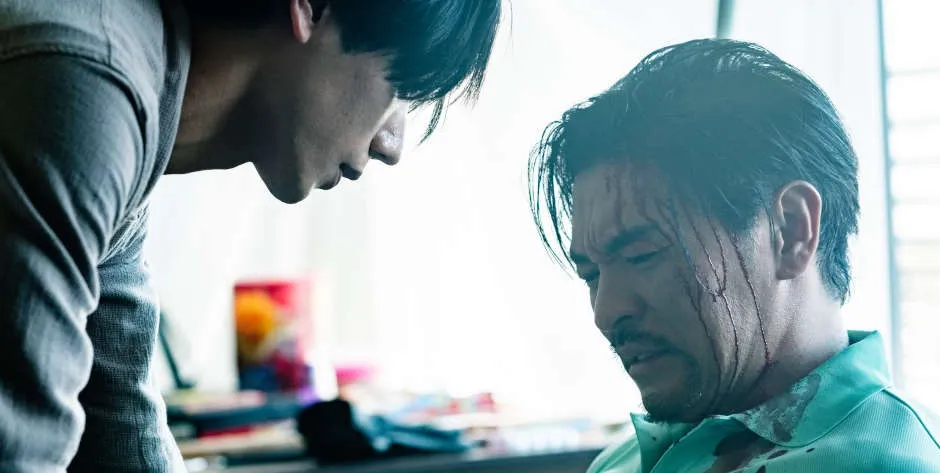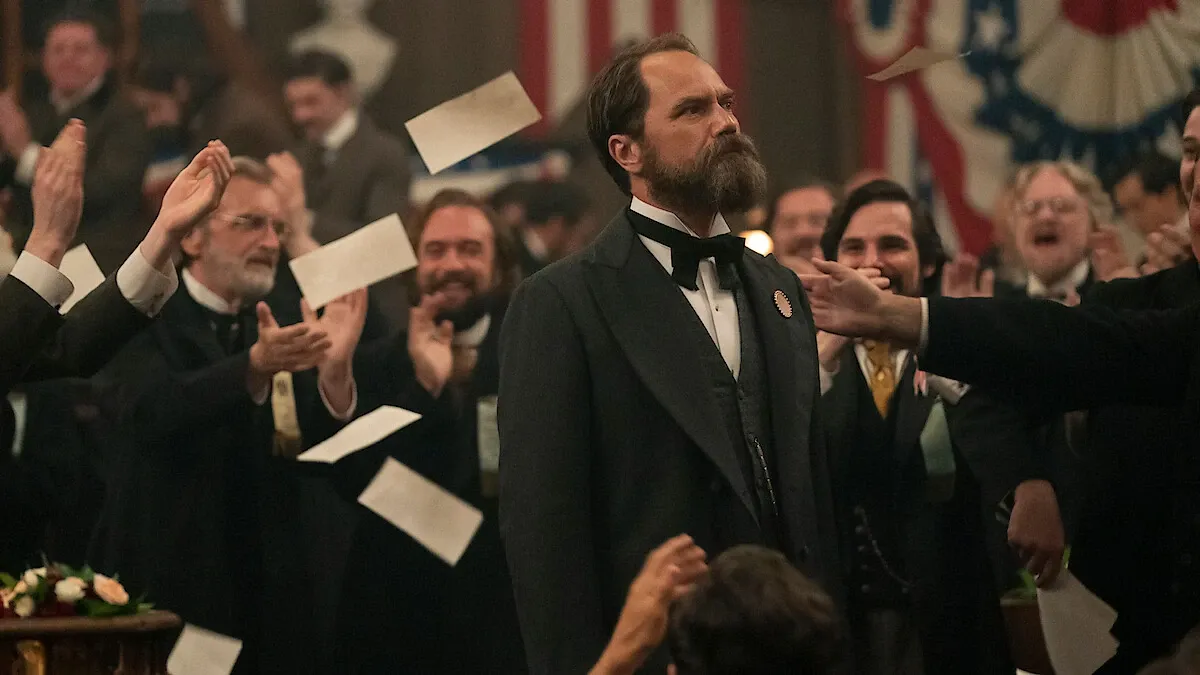In TRUE HISTORY OF THE KELLY GANG, directed by Justin Kurzel, Australia is painted as an apocalyptic wasteland not dissimilar to the desolate visions of George Miller.
The colors are washed out and nights are so inky black they feel like a void in the universe. From this world, we hear the story of Ned Kelly, outlaw, anti-authoritarian, son, husband, and madman. It’s not an objective truth by any measure, even the opening titles say everything is a lie. But truth has a habit of sneaking in with the embellishments, and as the story itself transforms and is molded by who does the telling, Kurzel asks us to consider just how much these stories of renegade outlaws define nations entirely.
There is no objective reality in this world. Everyone in it takes what they are told and accepts it as fact until it isn’t. Such impermanence makes everything feel intangible. The trees themselves are barren no matter the time of the year. Light behaves erratically as if the sun itself forgot how to shine. Kelly, played with frightening conviction by George MacKay, has long since changed from man to beast and it’s throughout the film we witness his metamorphosis into something stranger. He contorts himself at askew angles and chitters on the ground like an ape. When he meets others, men or women, he stands too close and paws at their bodies and faces like trying to remember what it once was to be a human.
It’s a subjective view told through the eyes of someone lacking the language to describe themselves. Much of the narrative follows Kelly’s long letter to his unborn child, written hastily mere moments before his death. So characters come and go, seasons shift without warning, and there is an emphasis on conflict, always conflict, and little else. Emotion and connection are noticeably, even jarringly cut out. It’s only through his mother and traveling companion whom Kelly calls his best friend that he can find comfort, even as that connection is built on possession and need rather than anything else. Even as his mother cradles him (both as a boy and young man) there is a sense that more is said in the touch than they could out loud. The majestic Essie Davis plays Ellen Kelly as both a tragic figure of dire circumstances and an architect of familial destruction.
Their feelings, whatever they may be, are not said out loud because of fear they might be wrong. They’re unsaid because nobody considers such things as morals in a world so upended. Violence and sex are as tied together as commerce and violence and every interaction between two men, or men and women, must first always answer the question of what can be got out of this.
But there is little male posturing to be found here. Their quarrels are not born from vain attempts at masculine dominance. Sexuality is at best an odd contrivance that must be dealt with. Like when Kelly and one of his many antagonists share a moment in a brothel; a stray sow wanders in, which Kelly’s partner lazily kicks aside with a tired “not again.”
Does that mean anything or is the reading colored by the expectation and weariness of modernity? Who can tell, but nobody seems to care, so there the implication lies. Sadly and soundly on the table attracting attention.
Even as Kelly finds himself smitten by the frail Mary (Thomasin McKenzie), we are left without any courtship or desire. One minute they are strangers, the next betrothed. It’s left unanswered whether Kelly truly loves her or if he’s with her because he was told not to be.
In the end, it doesn’t matter because their world is not one destined to be around for long. He and his gang are portrayed as rebels with as many causes as they have grievances. Angered young men who’ve realized their lot in the world is just as bad as the one they left for the natives of this country. Unlike the natives (who are merely glimpsed in the story), Kelly and his men are armed. They claim themselves an army, and for a brief minute, we see them as one.
Kurzel’s vision will surely divide audiences. It’s an unapologetic and often messy piece of art reminiscent of a first-time demo from a garage punk band. Which is not a slight at all. There is so much heart and soul poured into this film that it’s at times overwhelming. A climactic gun battle is so visually stunning it makes every other Western feel small by comparison.
But at the same time, it’s a grimy, explosive, and often repugnant look at a life that has no other purpose but violence. There’s so much hurt to look at that the two-hour-plus running time feels a tad long, but it’s hard to say where to cut. Everything connects to something else, and it’s maybe that inevitability that feels worst of all.
If you do see TRUE HISTORY on the big screen take care that it features some immensely drastic uses of strobe lighting. Those with sensory sensitivity will want to be aware that the final half hour will test you.
But disclaimers and warnings aside this is a film worth seeing in cinemas. It’s a gorgeous, intoxicating exploration of societal breakdown that feels, even as it shouldn’t, timely and relevant even today.













